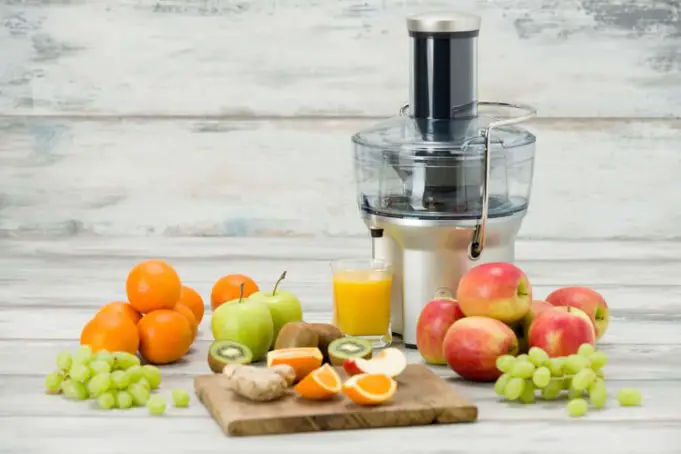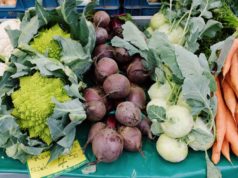Juicing involves the process of extracting fruit or veggie juices, commonly using electric juicers with spinning blade and gears.
It is usually an alternative form of medicine consumed by people who want to gain therapeutic benefits from fruits and vegetables, as well as fresh herbs and spices, like turmeric, garlic, and parsley.
Below are some reasons why people are juicing more than they used to. In that way, you’ll be guided accordingly on how to implement juicing in your daily routine.
People Want to Cleanse
According to Goodnature, digestion consumes 70 percent of your energy every day. But a lot of people have poor eating habits, which would warrant the need for cleansing.
It helps remove unwanted toxins from the body due to unhealthy food and metabolic waste products.
Fruits and vegetable juices make perfect cleansing agents for the gut because of their rich fiber, antioxidants, and anti-inflammatory properties, eliminating toxins and wastes.
It’s undeniable that people are attracted to juicing because it’s a good cleansing agent. Is it really effective? Read this how to do a juice cleanse blog post to learn more.
People Want to Lose Weight
Many people find juicing as a great way to lose weight. That’s why people are juicing more than they used to.
According to a trusted source, juicing can boost a person’s metabolism, which aids in weight loss. However, it doesn’t necessarily mean that you’ll just have a pure liquid diet to lose weight easily.
Doing so will just increase your cravings or hunger, which will prompt you to eat later the day or easily surrender such diet because you can’t resist the urge to eat, thus leading to frustration.
Here are some examples of healthy juices that can help you lose weight:
- Carrot Juice: Carrot juice increases bile secretion, helping burn fat to aid in weight loss. It’s full of fiber and low in calories, which will keep your stomach full until your next meal.
- Cucumber Juice: Cucumber juice is a refreshing summer drink. It has a high water content but low in calories. This juice also fills you up easily to satisfy your hunger.
- Pomegranate Juice: Pomegranates can help in burning fat and boosting metabolism because of their polyphenols, conjugated linolenic acid, and rich antioxidants. It’s an appetite-suppressing juice that will help you lose weight.
- Watermelon Juice: Watermelon is naturally rich in arginine, an essential amino acid that helps burn fat. You’ll be surprised to know that per 100 grams of watermelon, it only contains 30 calories.
- Orange Juice: This fruit juice is considered as a negative calorie fruit. It means that it burns more calories than what you actually eat.
People Want to Gain the Health Benefits of Juicing
There are many therapeutic benefits of juicing because fruits and vegetables are excellent sources of vitamins, minerals, and other substances that can help in strengthening immunity and aid the healing process of cells and tissues.
That’s why many people love the idea of juicing.
Here are the health benefits of juicing:
- Raw juices contain vegetal hormones, natural medicines, and antibiotics such as fresh juice of tomato, garlic, radish, and onion. For instance, onions have a hormone to help the pancreas produce insulin.
- Raw juices help normalize the body’s acid-alkaline balance to reduce excess acidity that may cause illness.
- Raw juices contain readily-absorbed organic minerals such as potassium, calcium, and silicon, which help restore mineral and biochemical balance in cells and tissues to avoid premature aging.
- Raw juice speeds up the recovery of damaged tissues by cell regeneration for a faster healing process.
Recommended Amount of Juice a Day
While people are juicing more than they used to because they want to reap the health and fitness benefits of juices, you still have to know your limitations.
It’s important to keep an eye on the recommended amount of juices you can safely and healthily consume every day.
According to Safefood, an implementation body in Ireland, unsweetened fruit juices and smoothies count towards one portion of fruit and vegetables, which should not be more than 150 ml or a small glass of juice.
Here are some tips when juicing:
- Select 100 percent unsweetened (no sugar) fruit juices if you’re buying bottled fruit juices commercially available.
- Consume fruit juices with main meals because their acidic nature can be damaging to your teeth. Using a straw can help reduce contact of juices to your teeth.
- Create your own homemade juices so you’ll fully aware of the content or ingredients use to help achieve your health goals.
Conclusion
Many people prefer juicing over other alternative supplement and treatment options and tend to juice more than they used to because juices are rich in vitamins and minerals.
Also, the fiber content of fresh fruits, vegetables, herbs, and spices can help in proper digestion, weight loss, improved immunity, and faster healing process.












